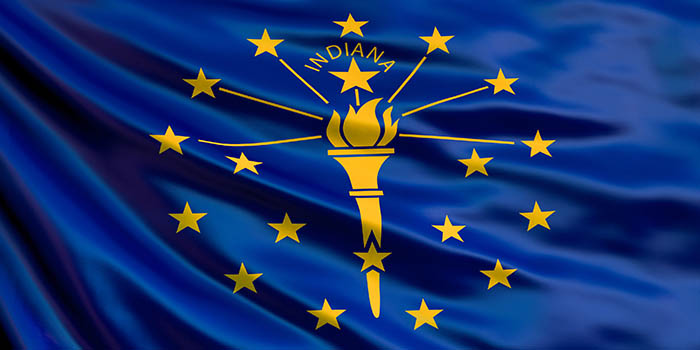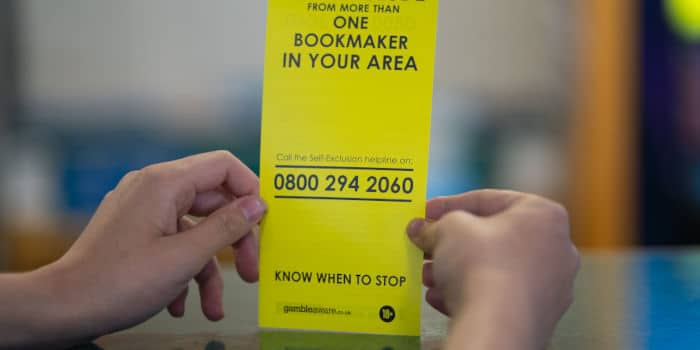- Casino
- By State
- Alabama
- Alaska
- Arizona
- Arkansas
- California
- Colorado
- Connecticut
- Delaware
- Georgia
- Florida
- Hawaii
- Idaho
- Illinois
- Indiana
- Iowa
- Kansas
- Kentucky
- Louisiana
- Maine
- Massachusetts
- Maryland
- Michigan
- Minnesota
- Mississippi
- Missouri
- Montana
- Nebraska
- Nevada
- New Hampshire
- New Jersey
- New Mexico
- New York
- North Carolina
- North Dakota
- Ohio
- Oklahoma
- Oregon
- Pennsylvania
- Rhode Island
- South Carolina
- South Dakota
- Tennessee
- Texas
- Utah
- Vermont
- Virginia
- Washington
- West Virginia
- Wisconsin
- Wyoming
- By State
- Slots
- Poker
- Sports
- Esports
Fact-checked by Velimir Velichkov
Senators Want to Eradicate the Federal Excise Tax via Bipartisan Bill
A Nevada senator and a fellow Mississippi senator want their bipartisan bill to eradicate the federal excise tax on gambling operators’ handle, in the hope that the tax relief would generate more jobs and stop illegal activities

Senator Cindy Hyde-Smith (D-Nev.) and Senator Catherine Cortez Masto (R-Miss.) want their bipartisan bill called the Withdrawing Arduous Gaming Excise Rates (WAGER) Act to eliminate the federal excise tax that is currently applied to gambling operators’ handle.
The tax relief would provide enhanced protection to legal sportsbook operators and gaming businesses, help Nevada and Tribal communities inject gaming revenue into local economies, create more jobs on the market, and help tackle illegal gambling activities more successfully.
WAGER Act to Eradicate Outdated Taxes
The bipartisan bill is expected to exempt legal sports betting from the outdated head and handle taxes imposed by the Internal Revenue Code (IRC).
The federal excise handle tax is set to 0.25% on all legal sports bets while the annual head tax per each employee of legal sports betting businesses is set to $50.
According to Senator Cortez Masto, a champion of Nevada’s tourism and gaming economy who secured $3 billion in funding for states in the American Rescue Plan, “responsible, legal sports betting can be a great revenue source” for the local economy.
She reiterated the fact that the Silver State hosts “multiple championship-level sports teams,” further explaining the bipartisan bill would make sure that the sports gaming industry would “provide essential tax relief to consumers” as well as the sports gaming industry, “creating more jobs,” keeping tax money within state borders “while cracking down on illegal activities.”
Similarly, fellow senator Hyde-Smith praised Mississippi’s “strong tourism industry,” partially the result of their “beautiful casinos and resorts that make valuable contributions to local communities.”
She then explained these venues “could do more if not for this outdated federal excise tax on sports betting that only benefits illegal offshore operations which provide zero jobs or tax revenue.”
Hyde-Smith believes that eradicating the tax would help “level the playing field, boost local economies,” and make sure gaming revenue stays in the state, “supporting more job openings and fueling investments in the community.”
AGA, Grateful for the Senators’ Commitment
The WAGER Act was warmly received by the American Gaming Association’s chief executive officer and president, Bill Miller.
Miller took the opportunity to express their gratitude for the two senators’ “commitment to providing a safe, responsible sports betting market and to continuing to help migrate bettors out of the illegal market.”
At the moment, the outdated tax works by punishing legal sports betting operations while giving incentives for illegal sportsbooks, since they are allowed to cut their operational costs and provide better odds.
In 2022, Nevada paid close to $22 million in handle taxes. The amount represented almost double the state’s total recorded in 2019.
The bipartisan bill would exempt legal sports betting from the tax while maintaining laws to keep cracking down on illegal activities.
Miller added the AGA will keep working with policymakers to enact legislation that will address the “harmful tax” in an attempt to redirect bettors out of the illegal market, which he called “bereft of consumer protections and a haven for bad actors” and people who avoid taxes.
A similar bipartisan bill has been introduced in the U.S. House of Representatives by Dina Titus (D-Nev.-01) and Guy Reschenthaler (R-Pa.-14).
Related Topics:
After finishing her master's in publishing and writing, Melanie began her career as an online editor for a large gaming blog and has now transitioned over towards the iGaming industry. She helps to ensure that our news pieces are written to the highest standard possible under the guidance of senior management.
Must Read
Legal
April 11, 2025
Aristocrat Pressures Light & Wonder over Evidence Access
Legal
April 10, 2025
EU Lawsuit Marks Pivotal Moment for Player Refund Claims
More Articles








Industry
April 16, 2025
Tennessee SWC Asks CFTC to Ban Sports Event Contracts

Industry
April 16, 2025
‘Tesla Terrorist’ Pleads Not Guilty to Litany of Charges

Casino
April 16, 2025
Jake’s 58 Casino Warns About Online Gambling Scam

Casino
April 16, 2025
Lucky Couple Hits $4.2M Megabucks Jackpot at Pechanga

Sports
April 16, 2025
North Carolina Could Double the Online Sports Betting Tax

Casino
April 16, 2025
Las Vegas Sands Faces Challenges Despite Analyst Optimism

Industry
April 15, 2025
Indiana Bill Seeking to End Lottery Couriers Advances










